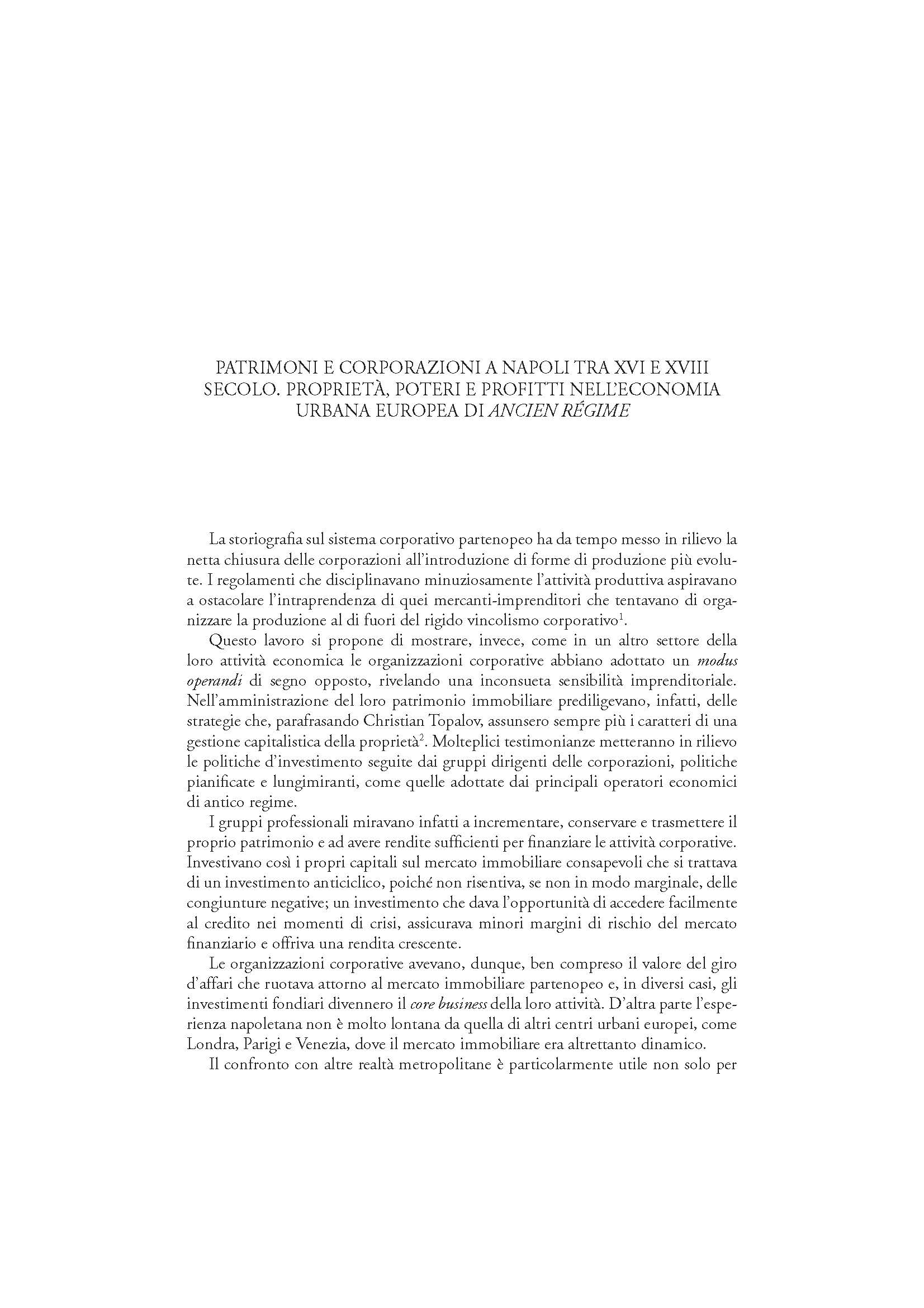Patrimoni e corporazioni a Napoli tra XVI e XVIII secolo. Proprietà, poteri e profitti nell’economia urbana europea di ancien régime
6,00 €
The historiography of the Neapolitan guild system has emphasized the complete opposition on the part of the guilds to the introduction of more developed forms of production and toward the initiatives of those merchant-entrepreneurs who tried to organize production outside the guild-imposed restrictions. This article wishes to show that, instead, in another sector of the their economic activity, the guilds adopted the opposite behavior, revealing an unusual entrepreneurial feeling. In the administration of their real estate they actually showed a preference for strategies that increasingly assumed the characteristics of capitalistic management. Between the fi fteenth and eighteenth century, the Neapolitan professional groups aimed at extending, preserving and passing on their own property and at having suffi cient income to fi nance social welfare. They were well aware that income property was a stable investment; an investment that guaranteed a narrower margin of risk than that of the fi nancial market and, in a growing city like Naples, offered increasing income.
The historiography of the Neapolitan guild system has emphasized the complete opposition on the part of the guilds to the introduction of more developed forms of production and toward the initiatives of those merchant-entrepreneurs who tried to organize production outside the guild-imposed restrictions. This article wishes to show that, instead, in another sector of the their economic activity, the guilds adopted the opposite behavior, revealing an unusual entrepreneurial feeling. In the administration of their real estate they actually showed a preference for strategies that increasingly assumed the characteristics of capitalistic management. Between the fi fteenth and eighteenth century, the Neapolitan professional groups aimed at extending, preserving and passing on their own property and at having suffi cient income to fi nance social welfare. They were well aware that income property was a stable investment; an investment that guaranteed a narrower margin of risk than that of the fi nancial market and, in a growing city like Naples, offered increasing income.

